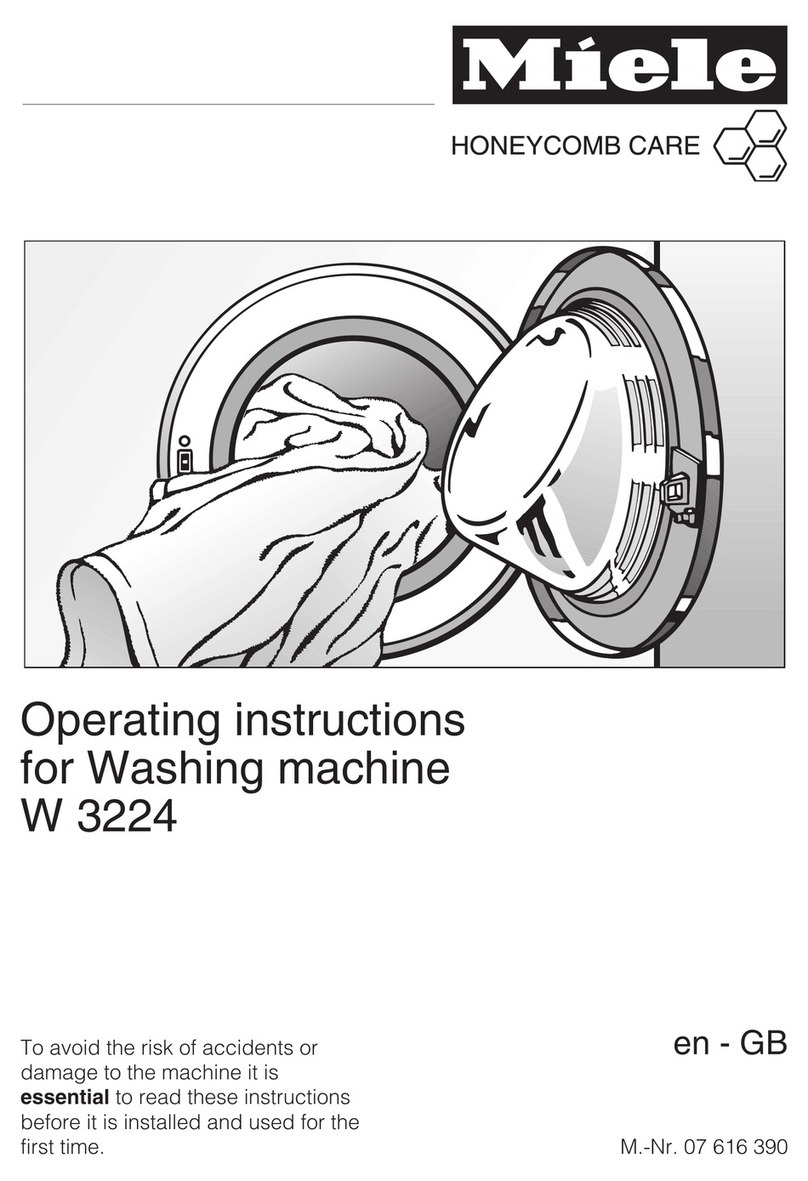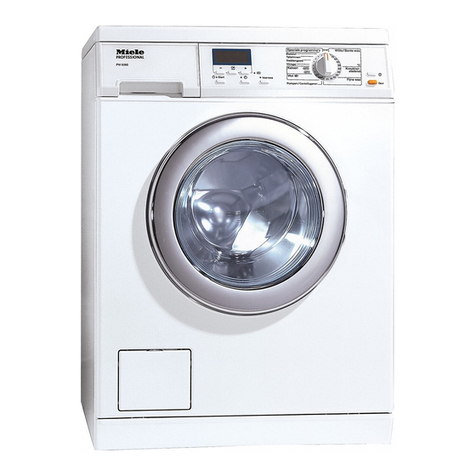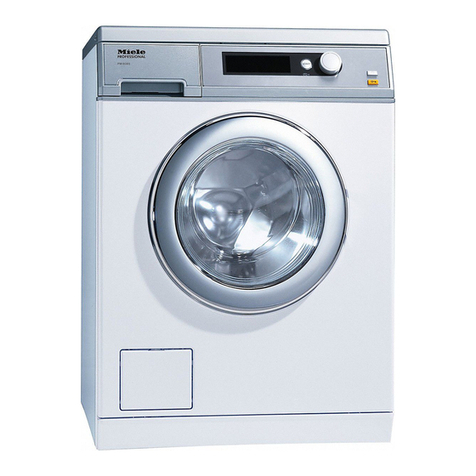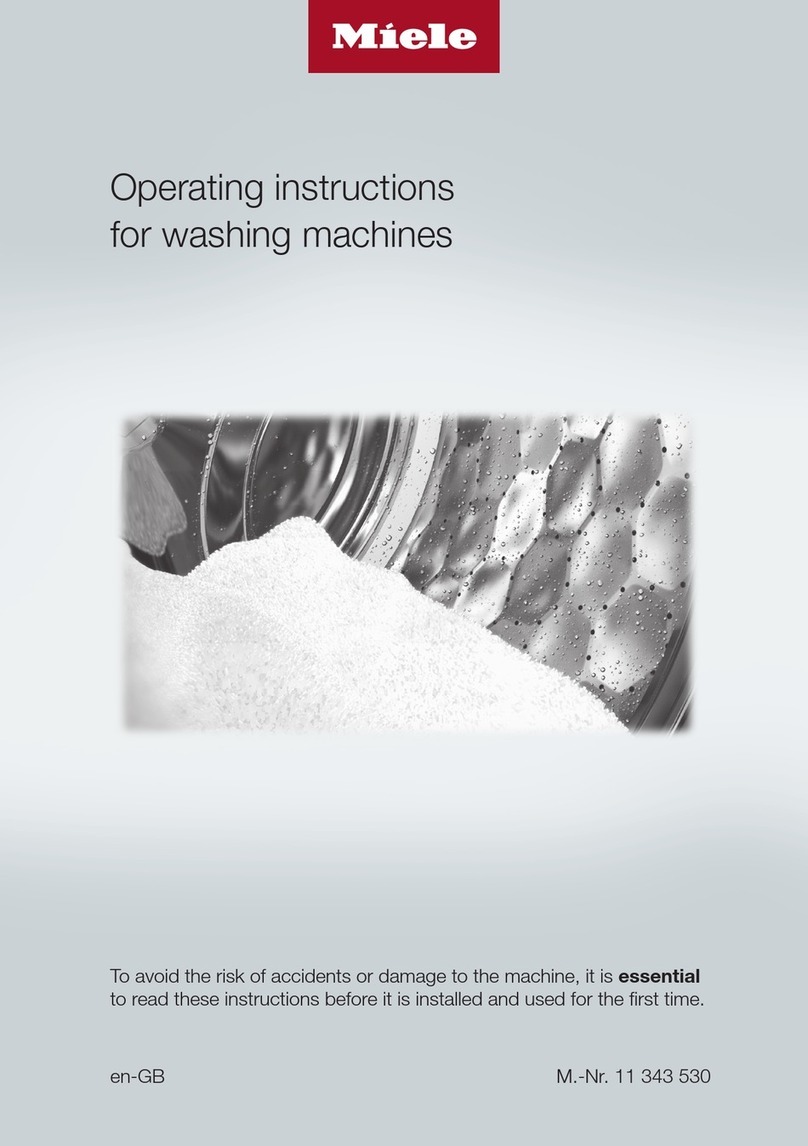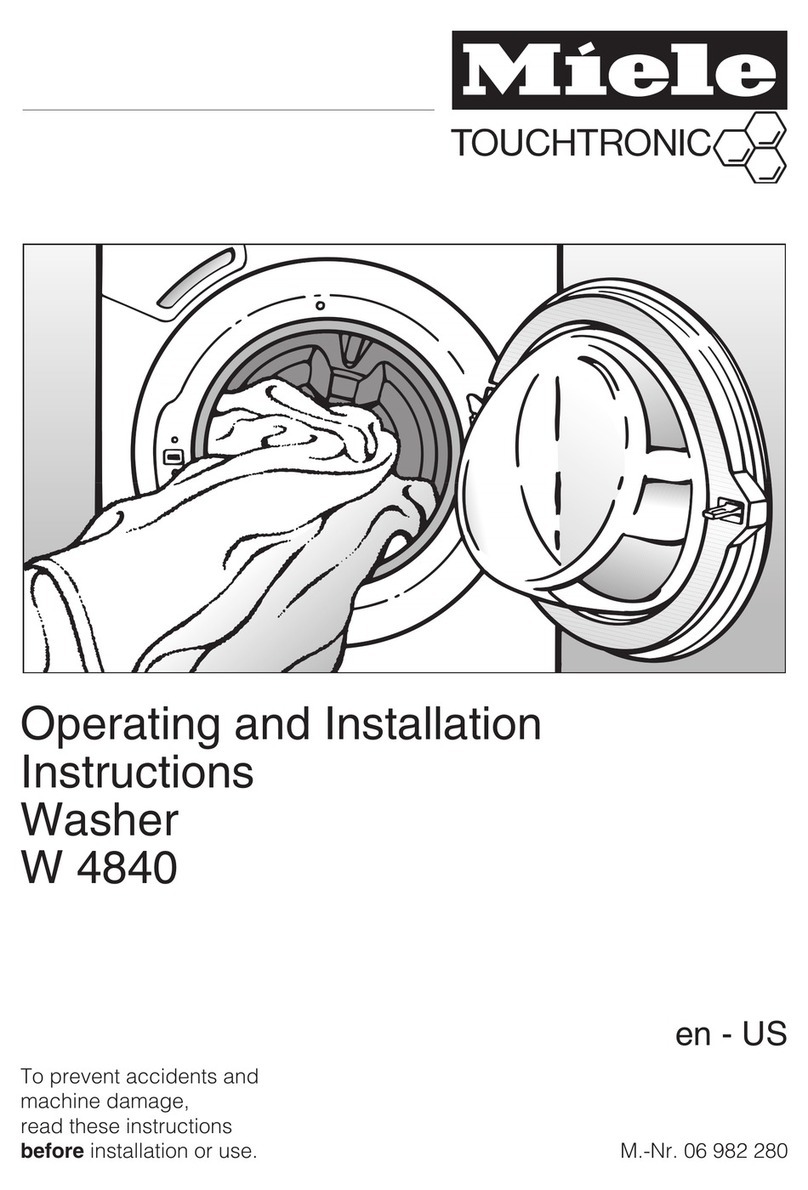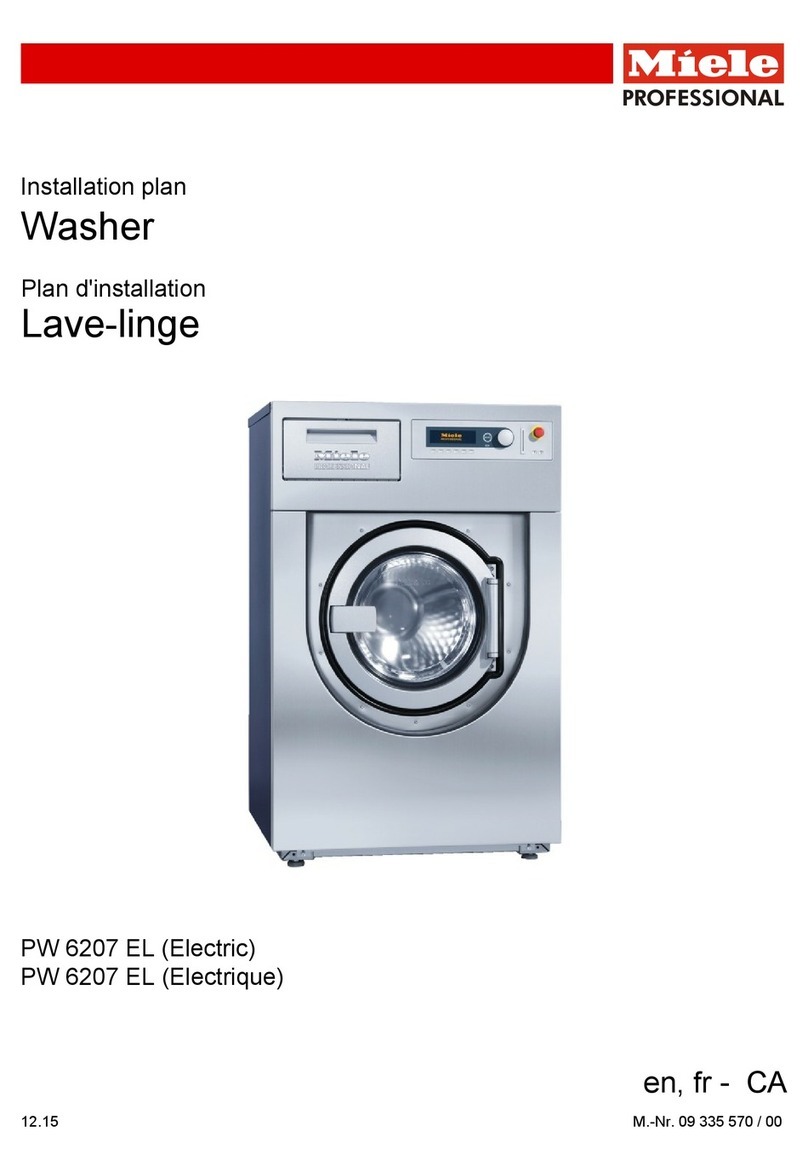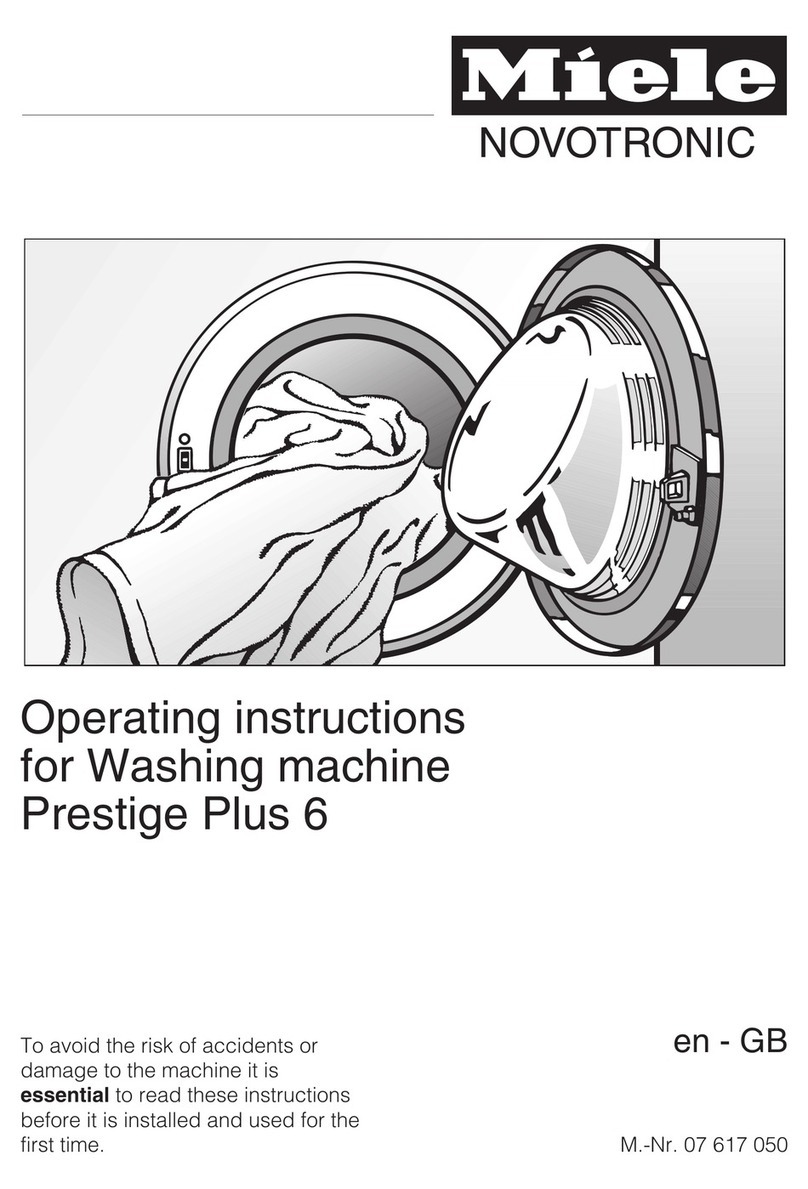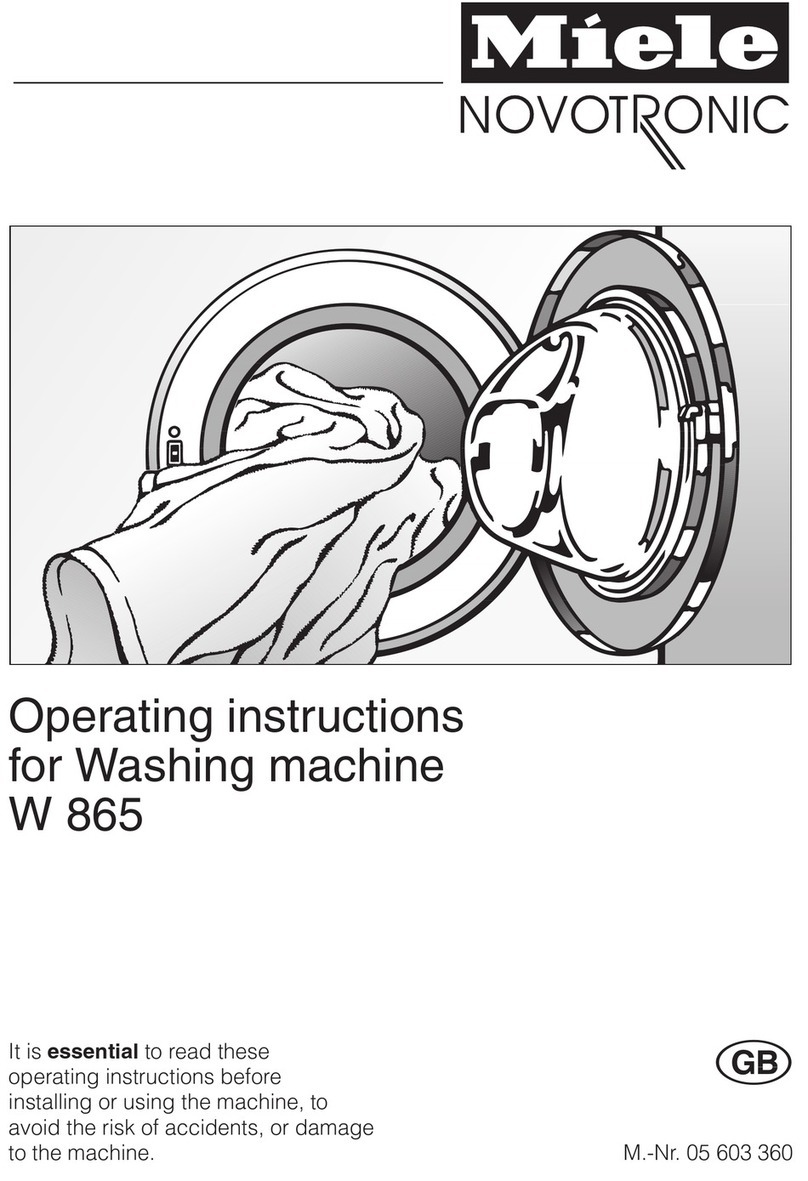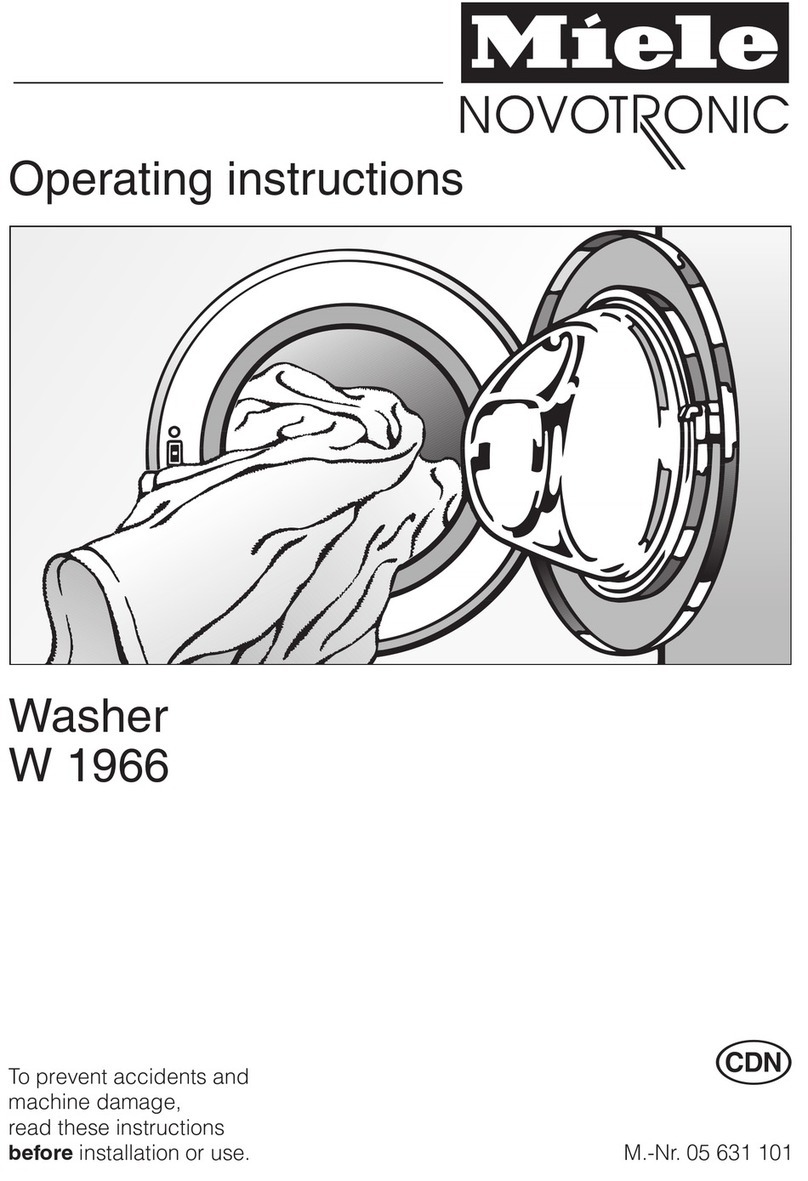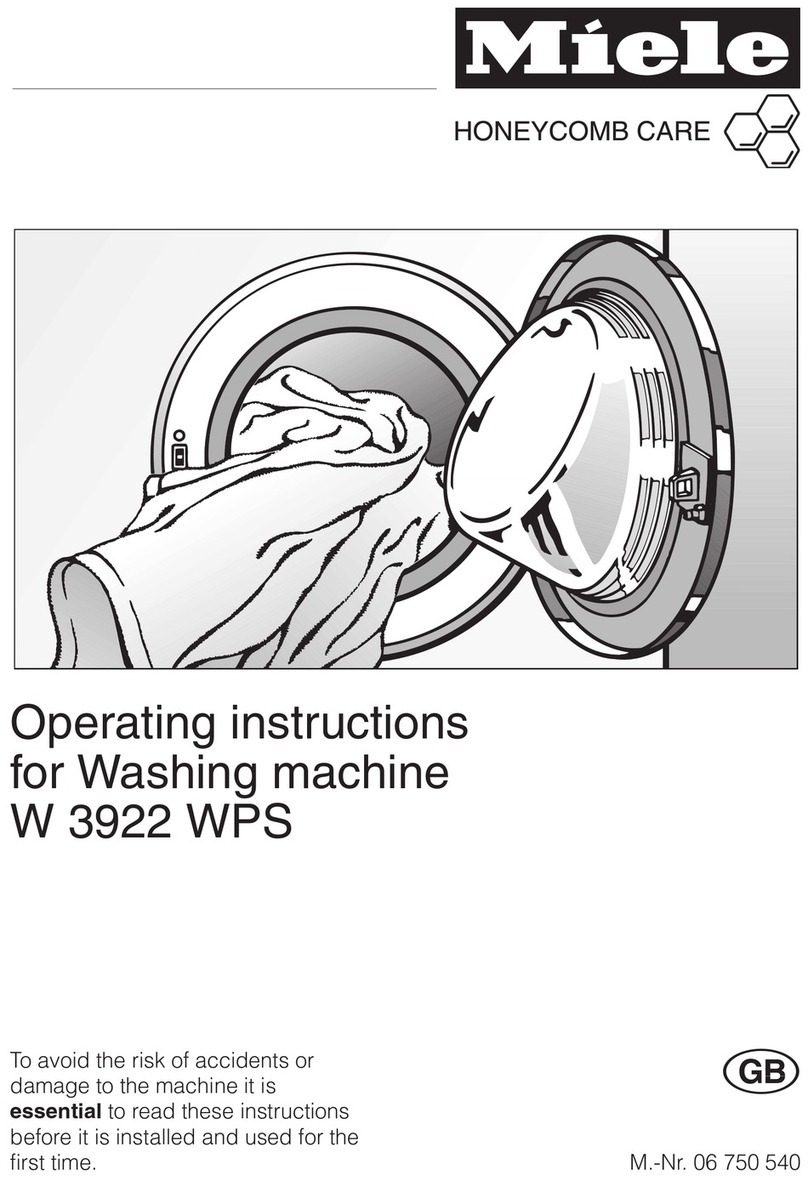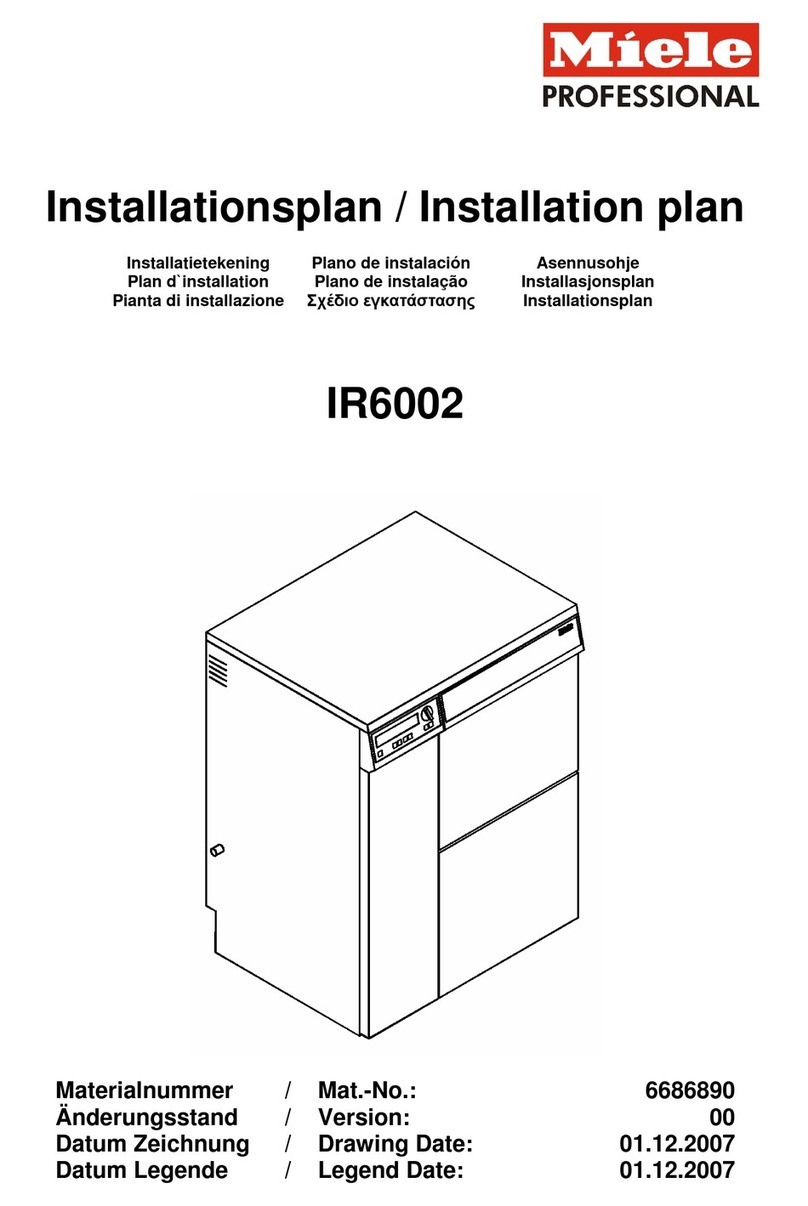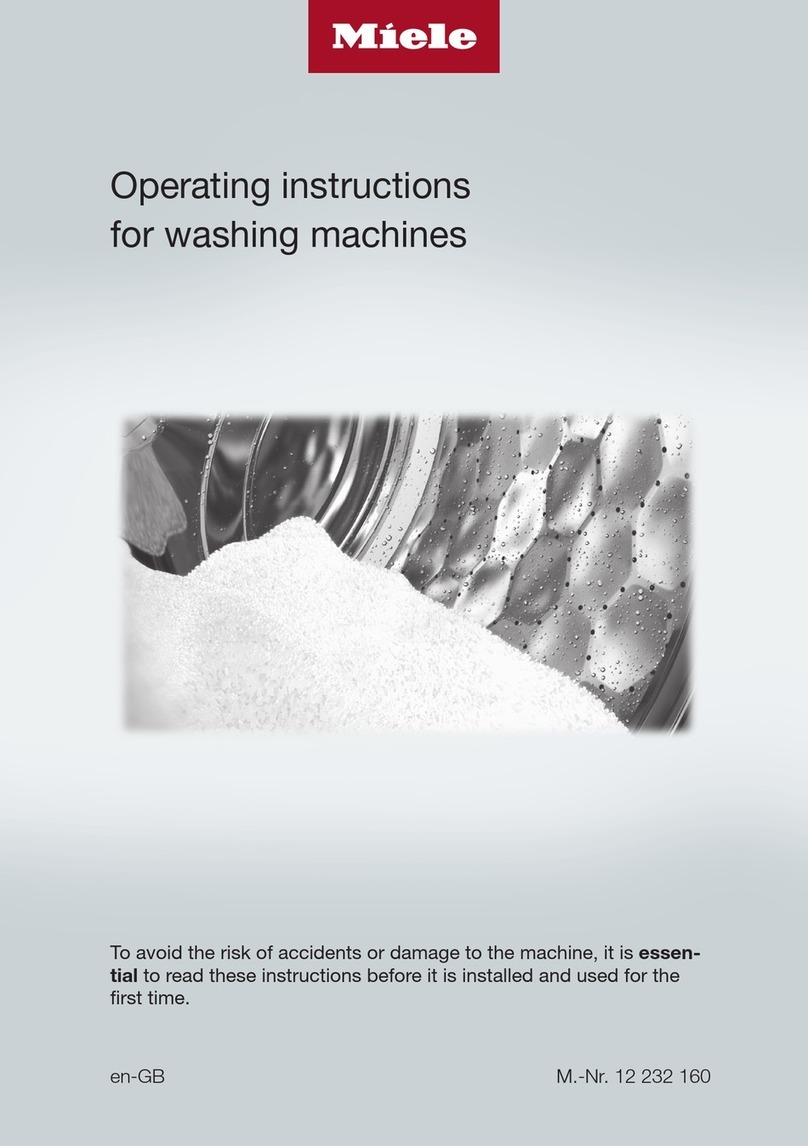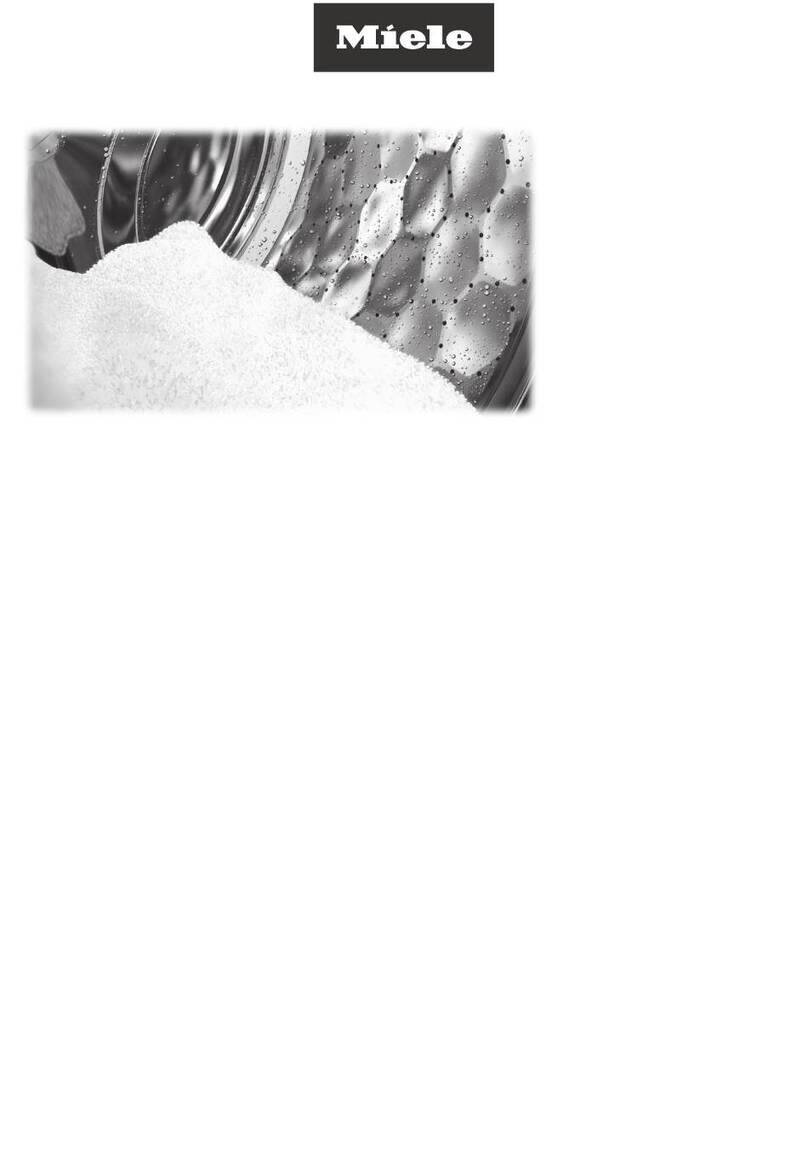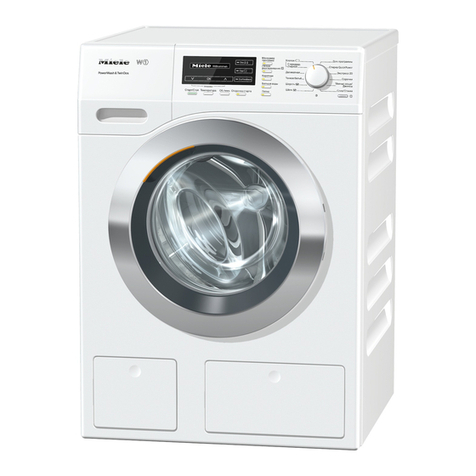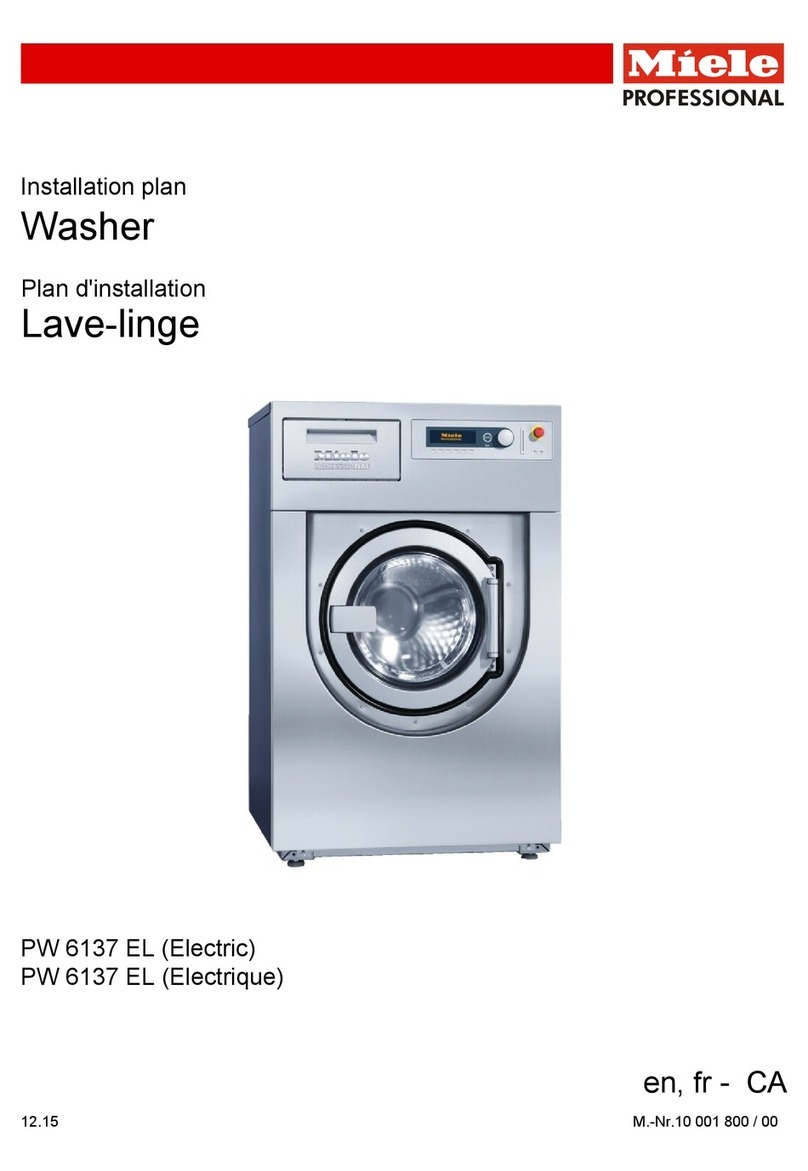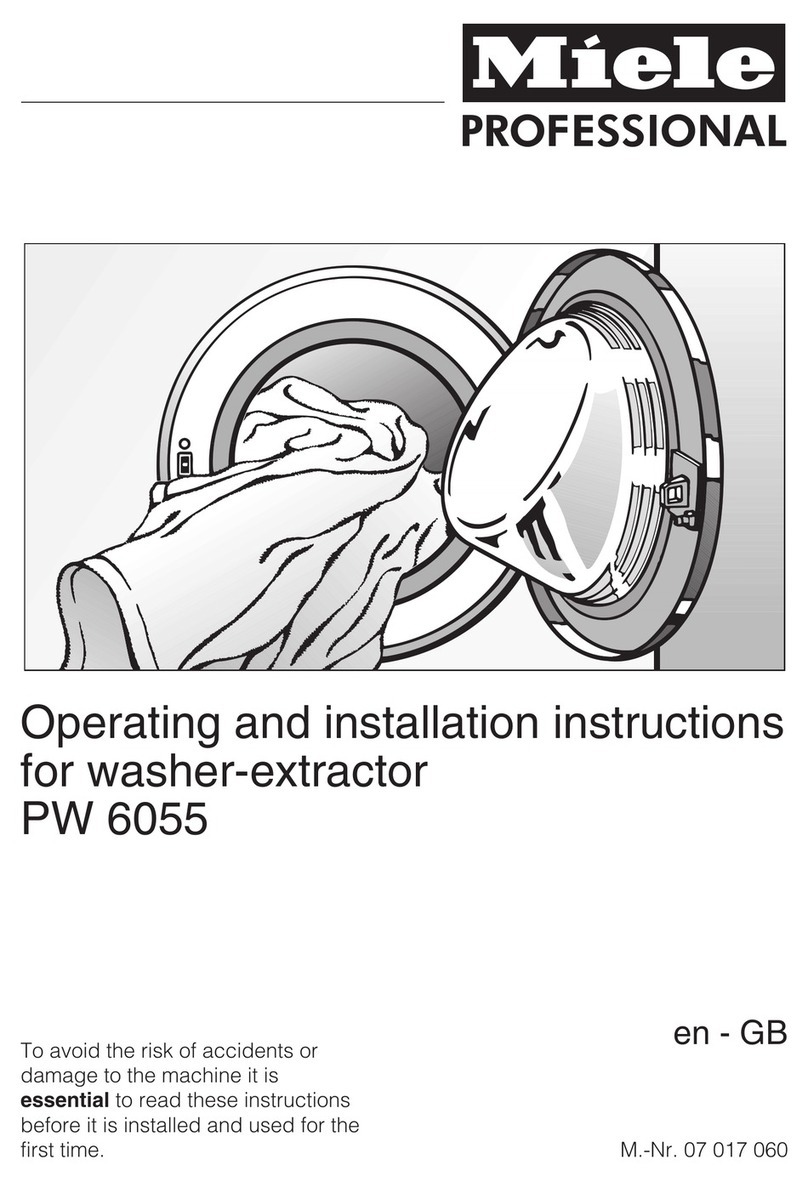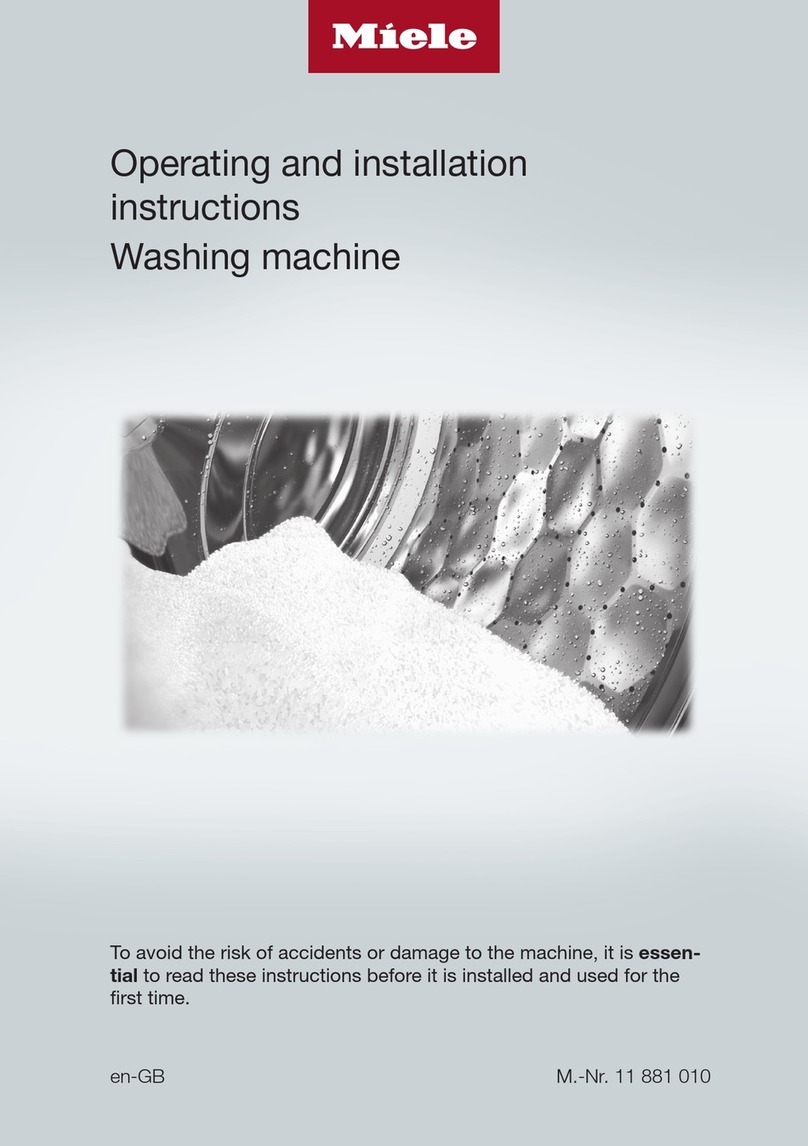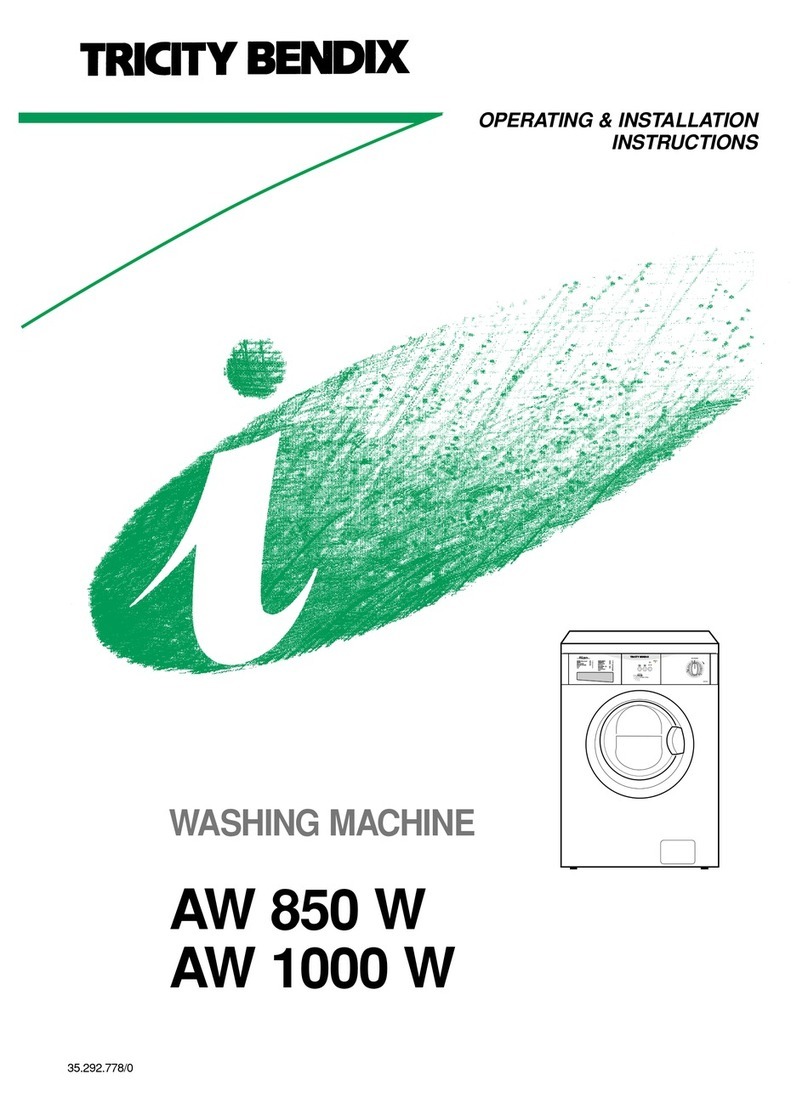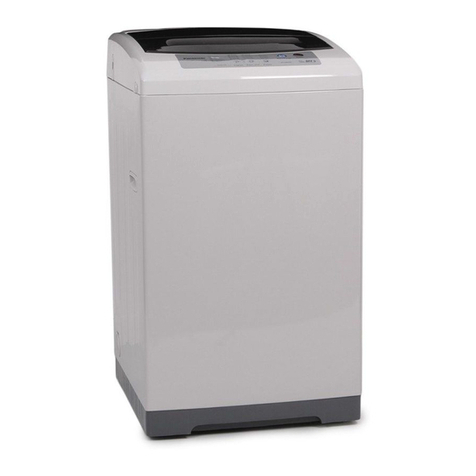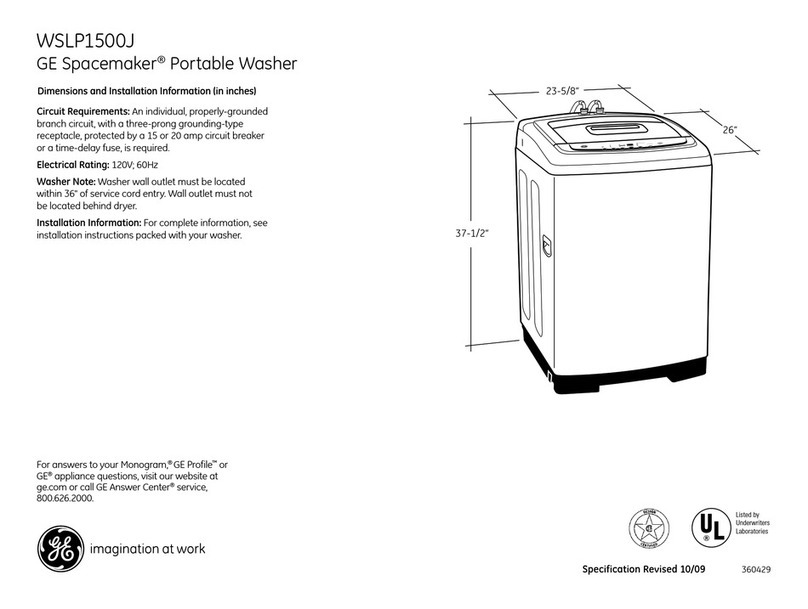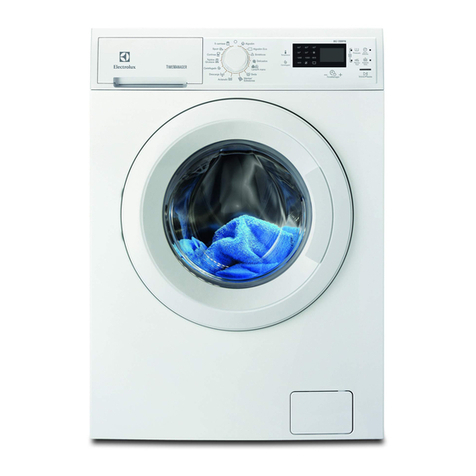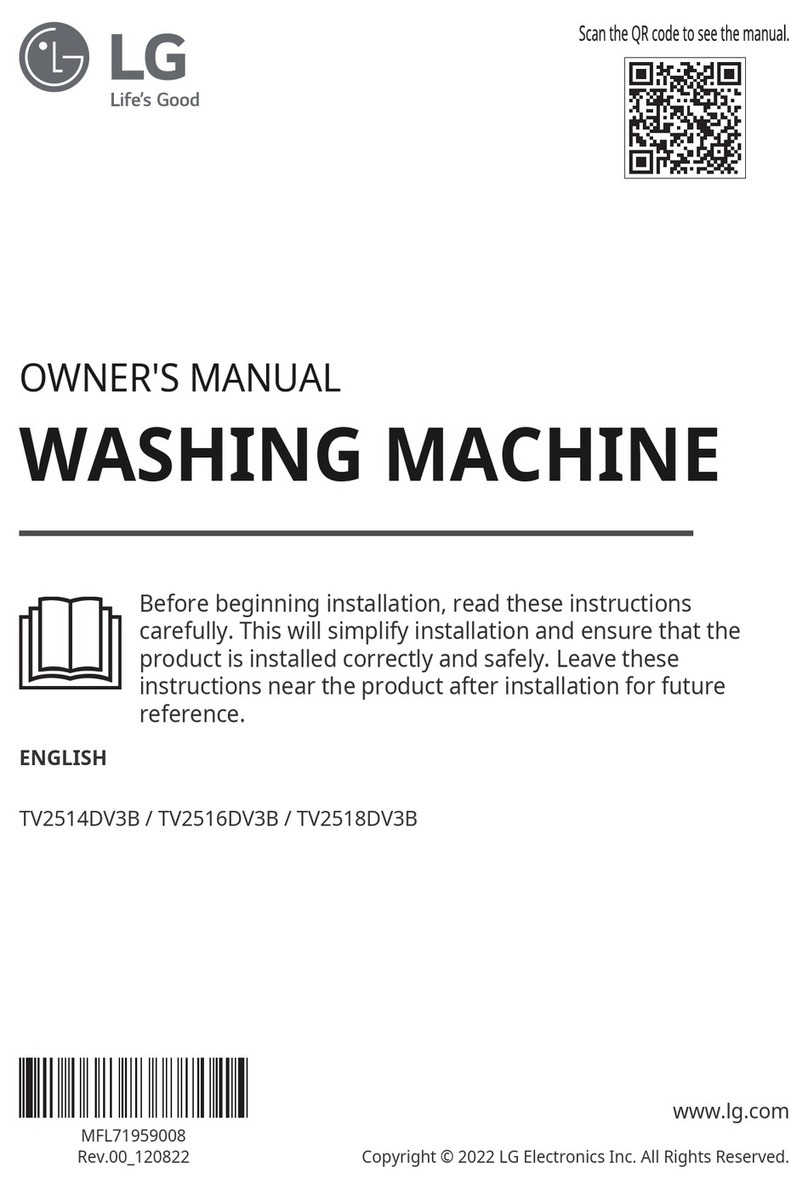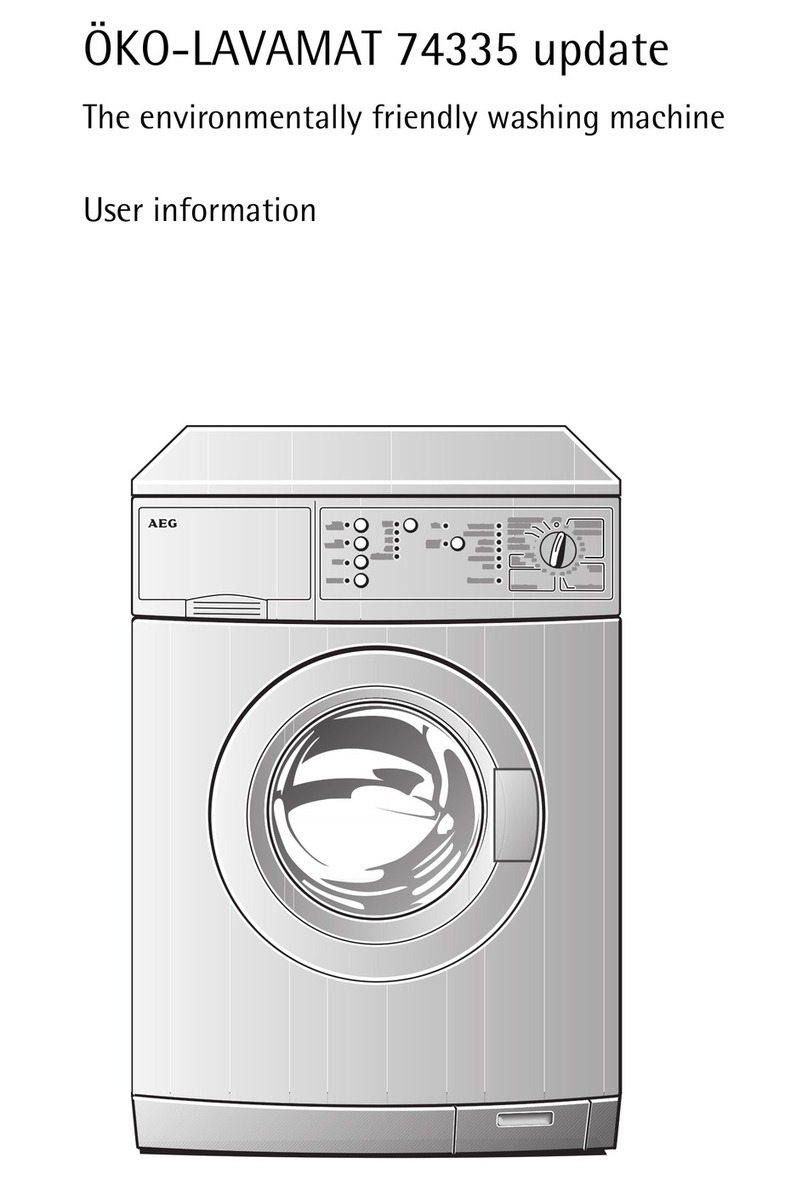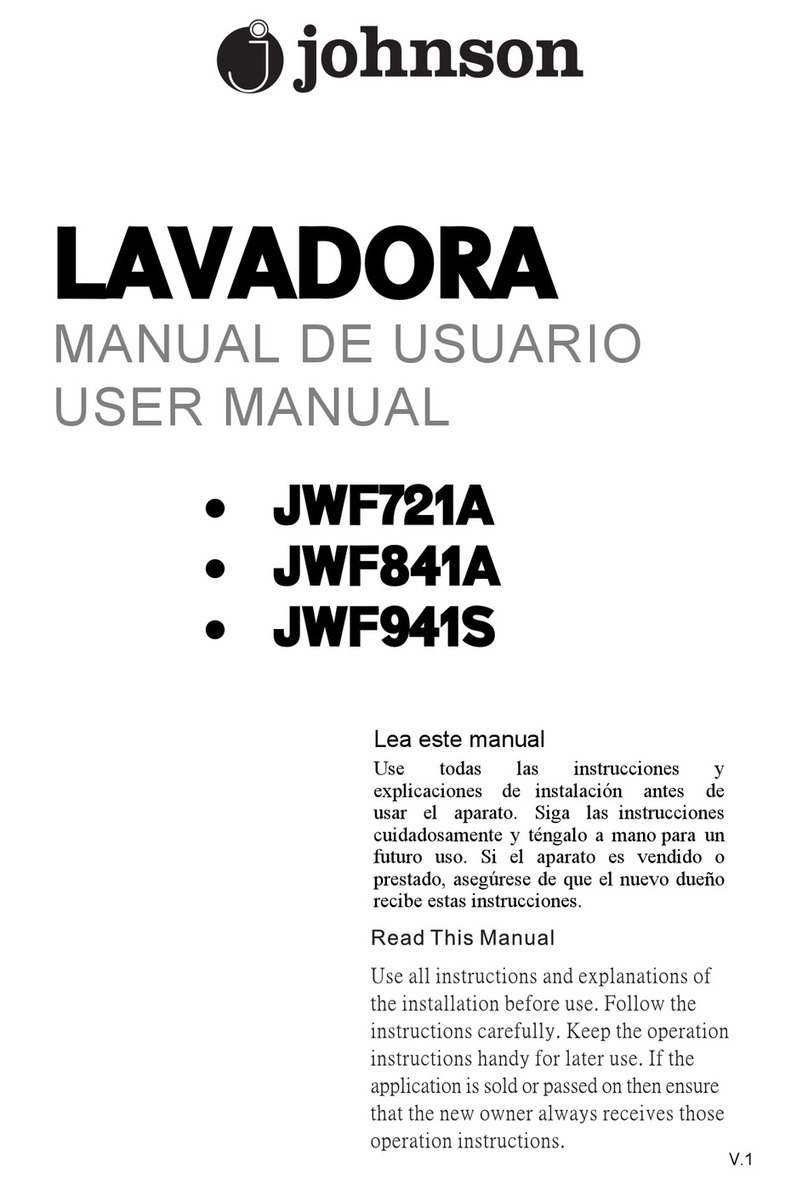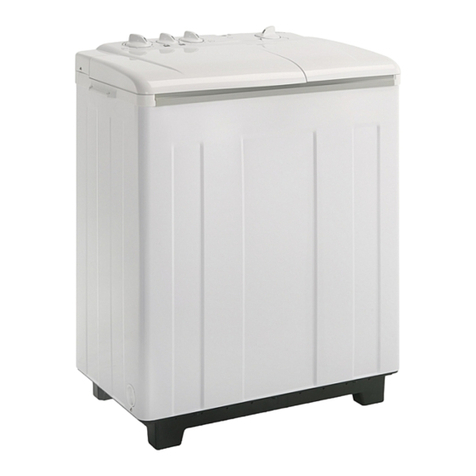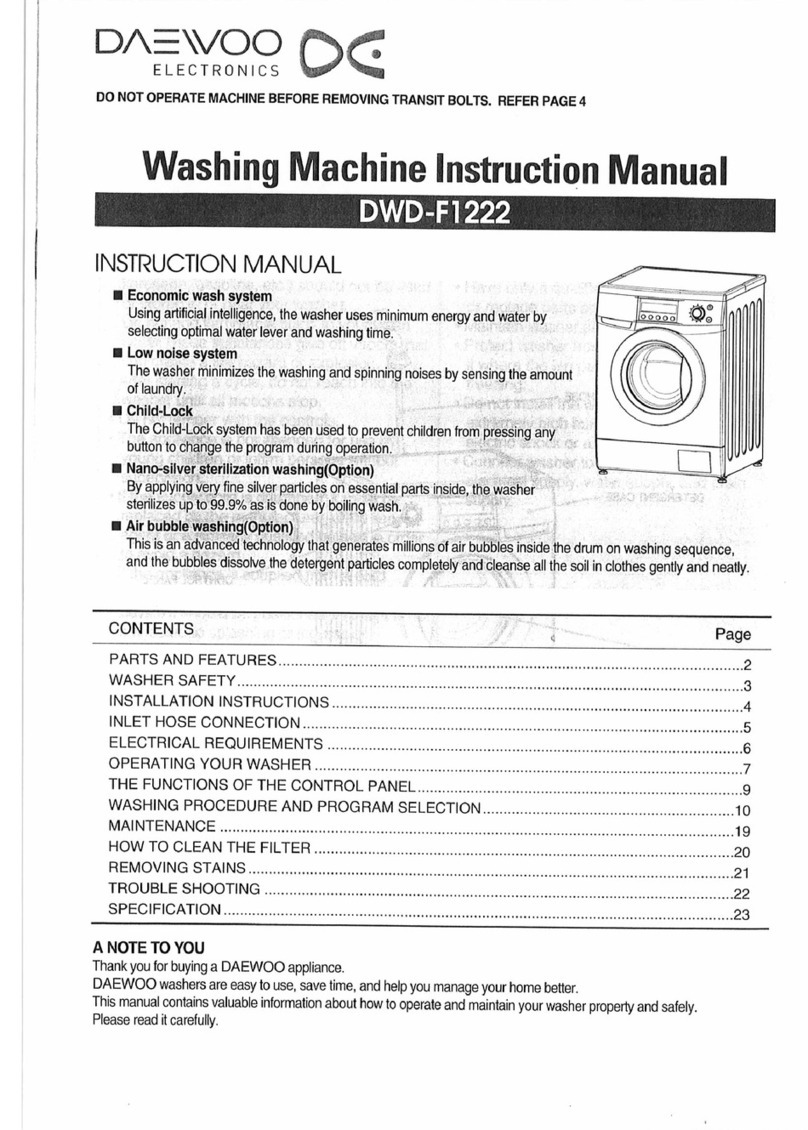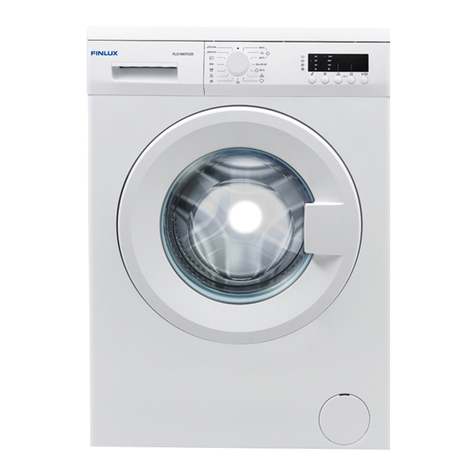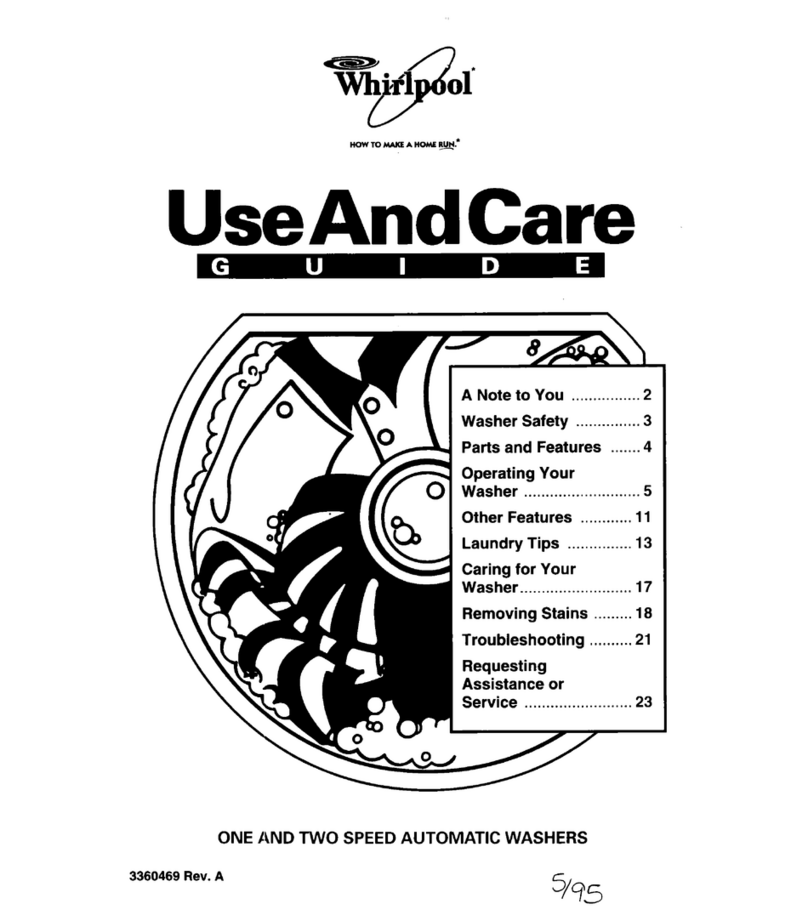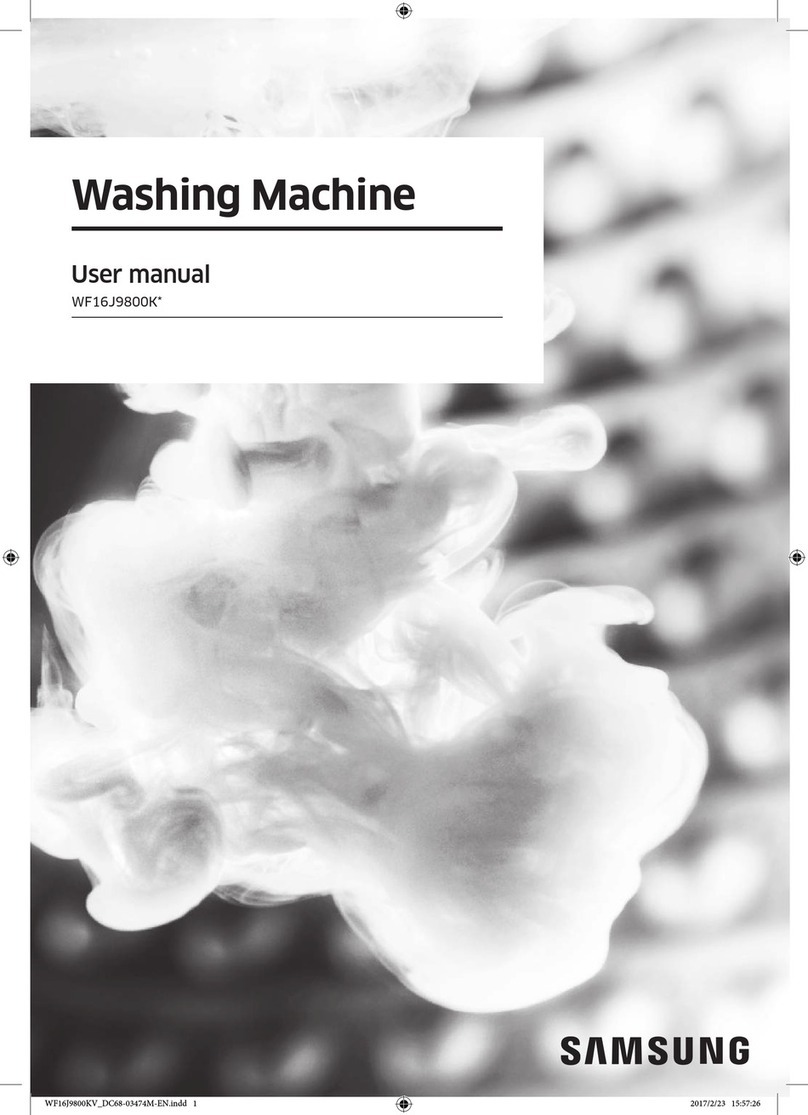To avoid the risk of accidents and
damage to the machine please read
these instructions carefully before
using it for the first time. They
contain important information on its
safety, use and maintenance.
Keep these instructions in a safe
place and ensure that new users are
familiar with the content. Pass them
on to any future owner of the
machine.
Correct usage
Only use the washing machine to
wash items which are specified by
the manufacturer to be
machine-washable on the wash-care
label, and textiles composed of
hand-washable wool or wool blend
fabrics as well as satin, lace, silk and
other hand-washable garments. Any
other applications may be dangerous.
The manufacturer is not liable for
damage resulting from improper use or
operation.
Technical safety
Before setting up the machine,
check it for any externally visible
damage.
Do not install or use a damaged
machine.
Before connecting the machine,
ensure that the connection data on
the data plate match the mains
electricity supply. If in any doubt,
consult a qualified electrician.
The electrical safety of this
machine can only be guaranteed
when continuity is complete between
the machine and an effective earthing
system which complies with local and
national safety regulations. It is most
important that this basic safety
requirement is present and regularly
tested, and where there is any doubt
the household wiring system should be
inspected by a qualified electrician.
The manufacturer cannot be held liable
for the consequences of an inadequate
earthing system (e.g. electric shock).
Do not connect the machine to the
mains electricity supply by an
extension lead. Extension leads do not
guarantee the required safety of the
machine (e.g. danger of overheating).
The machine is built in accordance
with current safety requirements.
Unauthorised repairs could result in
unforeseen dangers for the user, for
which the manufacturer cannot accept
liability. Repairs should only be
undertaken by a Miele approved
technician.
Ensure current is not supplied to the
machine until after maintenance or
repair work has been carried out.
Warning and Safety instructions
6
